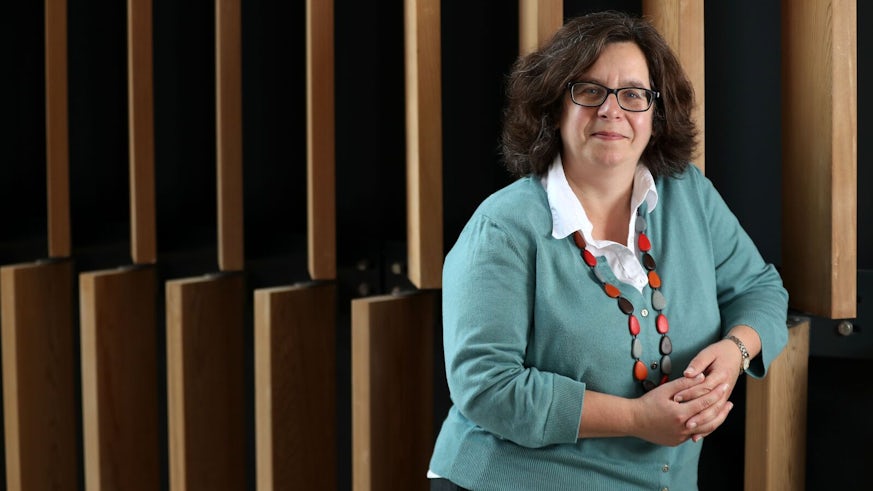Leading academic backs Innovation Audit
28 March 2019

A leading Cardiff University academic says a new science and innovation report can help to unlock innovation-led growth in South Wales.
Published by UK Government earlier this month, the audit has outlined how South Wales can take positive, lasting steps to unlock the region’s innovation-led growth potential.
Professor Kim Graham, Cardiff University Pro Vice-Chancellor for Research, Innovation and Enterprise, said: “Cardiff’s research excellence brings huge socio-economic benefits to Wales. The Audit shows how this supports growth through our co-investment in Research and Development with anchor companies and other private sector partners in Wales.
“Each of the Audit themes aligns with academic strengths from Cardiff University and its academic partners across Wales, with the Grand Challenge priorities identified in the Welsh Government’s science strategy ‘Science for Wales’ and regional priorities laid out in the economic action plan, ‘Prosperity for All’. We are working in close co-operation with R&D intensive businesses to deliver cutting-edge technologies to the marketplace, supporting economic growth and creating employment.”
The Science and Innovation Audit (SIA) South Wales Crucible consortium, backed by Welsh Government, brings together Swansea, Cardiff, Aberystwyth and Bangor universities, research centres of excellence and internationally significant firms.
Led by Swansea University, and commissioned by the Department of Business, Energy and Industrial Strategy (BEIS), the report confirms South Wales has significant national and international capabilities, a strong portfolio of globally competitive science, and innovation assets that advance steel innovation, smart manufacturing, health innovation and agricultural-food tech.
Ken Skates, Cabinet Secretary for Economy and Transport, said: “In Wales we need a better understanding of how research and innovation drives productivity and growth, so that we can support areas that provide the greatest opportunity to grow our economy, create jobs and develop skills. I see this Audit as part of the evidence base of assets in Wales, which can be exploited to achieve Government priorities.
“The South Wales economy is becoming more sophisticated and the Audit is a helpful tool to help us understand the current position and what we need to do to move forward. I welcome this Science and Innovation Audit, as it helps us understand the economy of Wales and enables us to plan for future investment.”
The process of conducting the SIA has developed and reinforced networks between universities, research and innovation organisations, businesses and industry.
The Audit aligns closely with the Cardiff Capital Region City Deal’s support for local innovation and economic growth, highlighting as an example Cardiff’s world leading expertise in compound semiconductor research. This cutting-edge capability has driven the City Deal’s long-term investment in CS Connected, the world's first compound semiconductor cluster which is based in South Wales.
Professor Hilary Lappin-Scott OBE, Chair of the South Wales Crucible Executive Sponsor Group and Senior Pro-Vice-Chancellor at Swansea University, added: “The core University members of our consortium recognise we have a vital role to play in transforming the productivity performance of our region. We are constantly striving to make a positive difference at local, national and UK levels. Having worked together effectively for many years, we share a common vision of transforming the Welsh economy with world-class science and innovation at its heart.”
James Davies, Executive Chair of Industry Wales, said: “The opportunity afforded to us by this Science and Innovation Audit (SIA) is very timely. The South Wales Crucible partnership will focus effort and resource on our specialised areas of excellence and differentiation where we can confidently and assertively lead science and innovation agendas – both for the benefit of Wales and the wider UK.”
